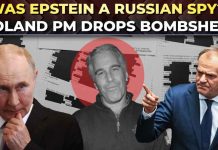
As federal scrutiny intensifies and lawmakers question the integrity of sports betting giants, DraftKings has quietly established a corporate Political Action Committee (PAC) to financially back business-friendly candidates who might shape the future of online gambling regulation.
Key Takeaways
- DraftKings has officially registered a corporate PAC with the Federal Election Commission amid growing regulatory pressure on the sports betting industry.
- The PAC aims to support candidates favoring policies that benefit DraftKings’ business model while facing bipartisan calls for federal antitrust investigations.
- DraftKings joins a select group of gambling companies with federal PACs, including MGM Resorts and Caesars Entertainment.
- The company is battling regulatory challenges in multiple states, including a controversial new per-transaction tax in Illinois.
- Since sports betting was federally legalized in 2018, the industry has expanded to 38 states with nearly $150 billion wagered last year.
Strategic Political Maneuvering Amid Growing Scrutiny
DraftKings’ new Political Action Committee, officially named “DraftKings Inc. Political Action Committee,” will be led by Lauren Pfingstag Vahey and Griffin Finan. The PAC is categorized under separate segregated funds (SSF), which restricts contributions to individuals associated with the sponsoring organization. This strategic move comes as lawmakers on both sides of the aisle intensify their scrutiny of the rapidly expanding sports betting industry, which has seen extraordinary growth since the 2018 Supreme Court decision that struck down the federal ban on sports wagering.
“DraftKings has launched a new corporate political action committee (PAC) as regulatory scrutiny over the U.S. sports betting industry intensifies,” said Lauren Pfingstag Vahey.
POLITICO noted that DraftKings is “jumping into electoral politics with a new corporate PAC” and is “one of the first major sports betting platforms to start a corporate PAC.” With this move, DraftKings joins an exclusive group of gambling companies that “have their own federal PACs,” including industry giants MGM Resorts, Caesars Entertainment, and PrizePicks. The American Gaming Association, which counts DraftKings among its members, also operates its own PAC to influence policy at the federal level.
Anticompetitive Allegations and Regulatory Challenges
The timing of DraftKings’ PAC formation is particularly notable as the company faces serious allegations of anticompetitive behavior. Following a failed 2016 merger attempt with FanDuel, bipartisan lawmakers have called for federal investigations into whether the company has violated antitrust laws by obstructing competition in the sports betting marketplace. The scrutiny has reached the Senate Judiciary Committee, which has held hearings on the industry, with senators urging the Federal Trade Commission to investigate potential monopolistic practices.
“We have established this PAC to support state and federal candidates and organizations who have shown an interest in issues affecting our business,” stated a company spokesperson, carefully avoiding direct reference to the antitrust allegations.
President Trump’s administration has been supportive of business deregulation, but the bipartisan nature of concerns about the sports betting industry suggests DraftKings may face regulatory challenges regardless of political winds. The company previously contributed $502,000 to Trump’s inaugural committee and spent $420,000 on federal lobbying efforts in 2023 alone, demonstrating its commitment to political influence as a business strategy.
State-Level Battles and Consumer Impacts
Beyond federal scrutiny, DraftKings is fighting regulatory battles at the state level. In Illinois, a newly implemented per-transaction tax on sportsbooks has prompted both DraftKings and FanDuel to introduce a $0.50 transaction fee on bets. The companies argue that such taxes could drive consumers to unregulated, illegal betting platforms, ultimately undermining consumer protections and state tax revenue goals.
“DraftKings’ ultimate goal is to build the best, most trusted, and most customer-centric destination for our players. The recent tax increase in Illinois makes it harder to provide the best service to our players while it simultaneously incentivizes more players to wager in the unregulated, illegal market,” stated a spokesperson.
Meanwhile, at the federal level, Rep. Paul Tonko has reintroduced the SAFE Bet Act, which proposes stricter national regulations on gambling advertising and enhanced consumer protections. Such legislation could significantly impact DraftKings’ business model and marketing strategies, giving the company additional motivation to build political alliances through its new PAC.
Expanding Industry Under Increasing Oversight
The sports betting industry has experienced explosive growth since legalization, expanding to 38 states plus Washington, D.C., with Americans wagering nearly $150 billion last year alone. This rapid expansion has naturally attracted increased attention from lawmakers concerned about consumer protection, addiction risks, and market concentration. DraftKings’ political positioning through its new PAC represents a recognition that the industry’s future growth depends not just on market dynamics, but on regulatory frameworks.
“Among other things, we are monitoring a range of regulatory, tax, and licensing policies around the country, including the recent tax increase in Illinois. In addition, DraftKings may prioritize issues that impact business operations, including the expansion of the legal, regulated online betting market,” outlining a broad agenda for their political activities.
As DraftKings navigates this complex regulatory landscape, its new PAC will likely focus on supporting candidates who favor lighter regulatory touches on the sports betting industry. For conservative voters concerned about government overreach and excessive taxation, the company’s stance against burdensome regulations that drive consumers to illegal markets may resonate, even as questions about market concentration and consumer protection warrant serious consideration.





